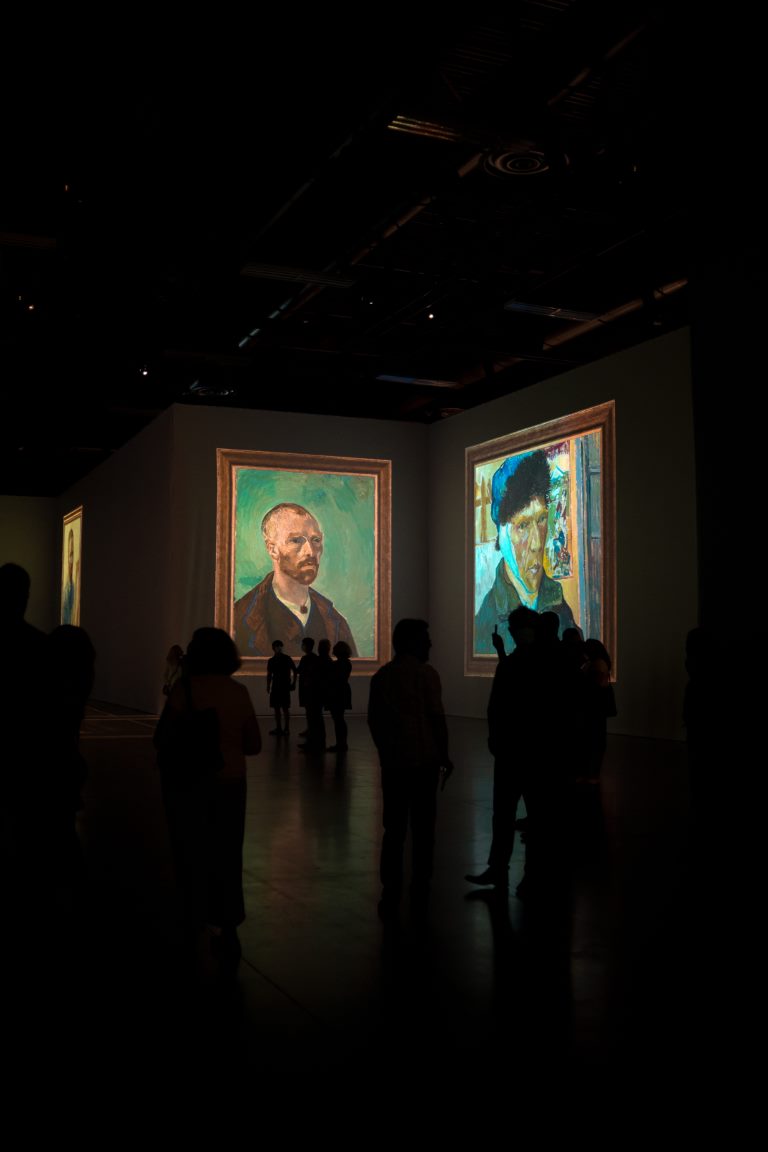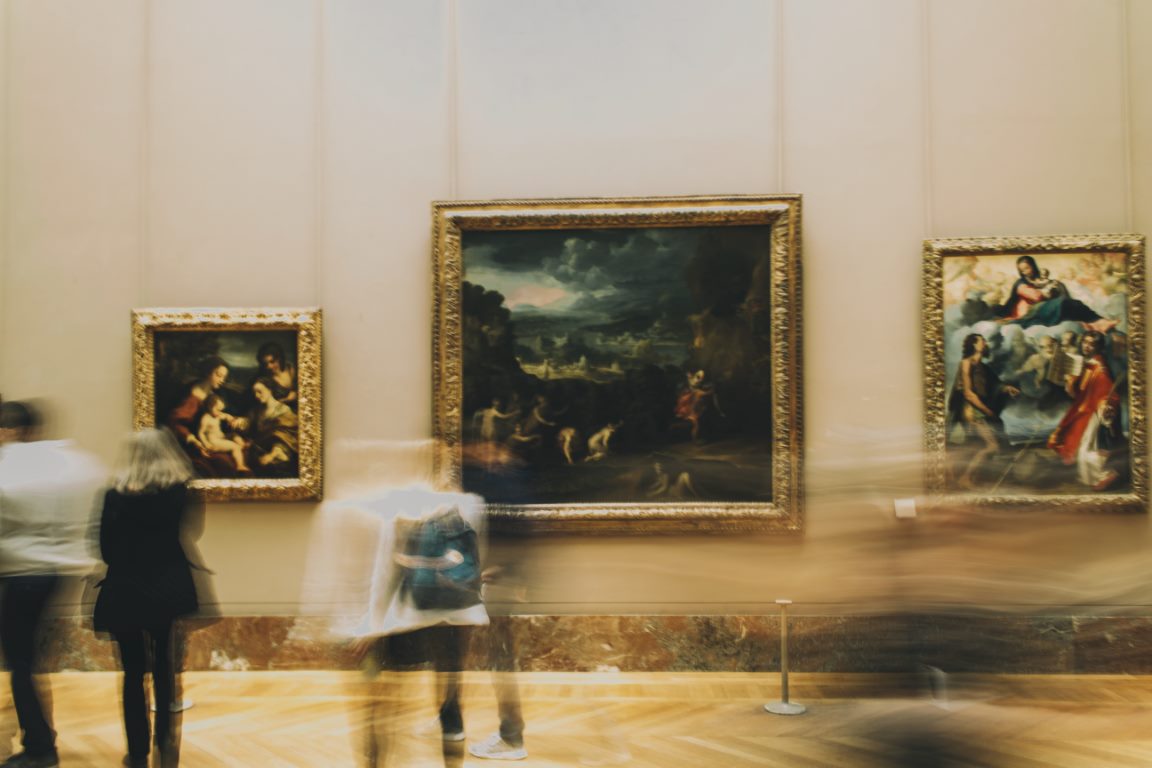How to Plan Your Transfer from Munich to Berlin Private Sightseeing Daytrip With 2 Stops
Are you planning to travel from Munich to Berlin and wondering how you can make the most of your journey? Look no further than the private transfer service that includes a day of adventure with two stops of your choice. This service ensures hassle-free and comfortable transportation while giving you the freedom to customize your itinerary. In this blog post, we’ll guide you through the steps of planning your transfer from Munich to Berlin private sightseeing day trip with two stops.Step 1: Book Your Private Transfer Service
Before you embark on your day trip, you need to book your private transfer service. You can book the transfer and sightseeing day trip online via Viator’s website. This private transfer service includes an air-conditioned, clean, and comfortable vehicle along with all taxes, fees, and handling charges. The vehicle is driven by a personal driver who can recommend stops for sights, history, food, and more. The service also includes bottled water, ensuring that you keep hydrated throughout your journey.Step 2: Customize Your Sightseeing Itinerary
The transfer service provides you with the flexibility to customize your sightseeing itinerary. You can choose to spend a 2-hour sojourn at two different locations out of the following options: Potsdam, Leipzig, Bayreuth, Dachau, or Ingolstadt. Customize your sightseeing itinerary and let the driver know of the locations you would like to visit. The personal driver will guide you through an exciting and informative day trip, providing you with insights into the history and culture of the locations that you visit.Step 3: Plan Your Stops
To make the most of your day trip, plan your stops ahead of time. Below are the five locations that you can choose to visit as part of your transfer from Munich to Berlin private sightseeing day trip:1. Potsdam
Potsdam is a picturesque town situated on the banks of the Havel River. This town has many historic landmarks, including palaces, gardens, and museums. Some of the must-visit locations in Potsdam include the Sanssouci Palace, the New Palace, the Dutch Quarter, and the Babelsberg Film Studio. You can also visit the Park Sanssouci, which is a UNESCO world heritage site that features stunning gardens and palaces.2. Leipzig
Leipzig is a city situated in the eastern part of Germany. This city is known for its rich history, culture, and art. Some of the must-visit locations in Leipzig include the St. Thomas Church, the Leipzig Zoo, the Leipzig Museum of Fine Arts, and the German National Library. You can also visit the Leipzig Botanical Garden, which is one of the oldest botanical gardens in Germany.3. Bayreuth
Bayreuth is a town situated in the northern part of Bavaria. This town is known for its historic landmarks, including palaces, museums, and opera houses. Some of the must-visit locations in Bayreuth include the Bayreuth Festival Theatre, the Margravial Opera House, the Bayreuth New Palace, and the Richard Wagner Museum. You can also visit the Eremitage Palace, which features a stunning park and a maze of waterways.4. Dachau
Dachau is a town situated in the southern part of Germany. This town is known for the Dachau concentration camp, which was one of the early concentration camps established by the Nazi regime. Today, the Dachau concentration camp serves as a memorial site and museum, providing an important insight into one of the darkest periods of German history.5. Ingolstadt
Ingolstadt is a town situated in the northern part of Bavaria. This town is known for its rich history, culture, and architecture. Some of the must-visit locations in Ingolstadt include the New Castle, the Old Castle, the St. Maurice Parish Church, and the Bavarian Army Museum. You can also visit the Audi Forum Ingolstadt, which features a museum, a showroom, and a factory tour of the Audi automobile.Step 4: Enjoy Your Day Trip
You’ve booked your transfer service, customized your itinerary, and planned your stops. Now it’s time to enjoy your day trip from Munich to Berlin with two stops of your choice. Your personal driver will ensure that you have a comfortable and informative journey, providing you with insights into the history and culture of the locations that you visit.Step 5: Book Your Tour Now
To book your transfer from Munich to Berlin private sightseeing day trip with two stops, simply visit the following link: book the tour here. Get ready for an unforgettable day trip that combines the convenience of private transportation with the freedom to explore at your own pace.Book Your Tour Now
A private transfer service from Munich to Berlin private sightseeing day trip with two stops is an excellent way to explore Germany’s rich history, culture, and architecture. By following the steps outlined in this guide, you can customize your itinerary and plan your stops, ensuring that you get the most out of your day trip. So, what are you waiting for? Book your tour today and get ready for an exciting and informative journey.
Munich: Frequently Asked Questions (FAQ)
1. What is Munich famous for?
Munich is famous for many things, including:- Oktoberfest
- Nymphenburg Palace
- Marienplatz
- Theatine Church
- The English Garden
2. How many days should I spend in Munich?
To see the major tourist attractions in Munich, it is recommended to spend at least 3-4 days in the city. However, if you want to explore the city in-depth, 5-7 days would be better.3. When is the best time to visit Munich?
The best time to visit Munich is from late spring to early autumn, especially during the months of May to September. The weather is generally pleasant during this time, and several festivals take place during these months, such as the Oktoberfest.4. What is the best way to get around Munich?
The best way to get around Munich is by public transportation, such as the U-Bahn (subway), S-Bahn (suburban train), and buses. Munich also has an extensive network of cycling paths and bike-sharing schemes which are a popular option for many tourists.5. What is the currency used in Munich?
The currency used in Munich, and the rest of Germany, is the Euro (EUR).6. What is the legal drinking age in Munich?
The legal drinking age in Munich, and the rest of Germany, is 16 for beer and wine and 18 for spirits.7. What are some traditional dishes to try in Munich?
Munich is known for its traditional Bavarian cuisine, which includes dishes such as:- Weißwurst (white sausage)
- Schnitzel (breaded meat)
- Spätzle (German pasta)
- Brezen (pretzel)
- Sauerkraut (fermented cabbage)
8. What are some popular museums in Munich?
Munich has several world-renowned museums that attract visitors from all over the world, such as:- The Deutsches Museum (science and technology museum)
- The Pinakothek museums (art museums)
- The BMW Museum (automobile museum)
- The Staatliche Antikensammlungen (classical art museum)
9. Is Munich a safe place to visit?
Munich is a relatively safe city to visit, with low crime rates. However, like any tourist destination, it is important to be aware of your surroundings and take precautions to avoid becoming a victim of petty crime, such as pickpocketing.10. What are some popular day trips from Munich?
Munich is a great base for exploring the Bavarian region, with many beautiful towns and attractions within easy reach. Popular day trips from Munich include:- The Neuschwanstein Castle
- The Berchtesgaden National Park
- The Dachau Concentration Camp Memorial Site
- The Salzburg Old Town (Austria)
- The Rothenburg ob der Tauber (medieval town)
11. Is it necessary to speak German in Munich?
While it is always helpful to know some basic German, especially if you plan on venturing outside the main tourist areas, it is not necessary to speak fluent German to visit Munich. Many people in Munich speak English, and most tourist attractions have English translations and guides available.12. What is the dress code for Munich?
Munich has a relatively casual dress code. However, it is advisable to dress appropriately when visiting places of worship and formal events. Also, be aware that in some traditional beer halls, it is customary to dress in traditional Bavarian attire.13. What are some popular festivals in Munich?
Munich is known for its numerous festivals and events, some of the most popular of which include:- Oktoberfest (September/October)
- Tollwood Winter Festival (November/December)
- Starkbierzeit (March)
- Frühlingsfest (April/May)
- Summer Tollwood Festival (June/July)
14. What is the voltage in Munich?
The voltage in Munich is 230 volts, and the frequency is 50 Hz. If you are traveling from a country with a different voltage, you will need to bring a converter or adapter for your electrical devices.15. What is the tipping etiquette in Munich?
In Munich, it is customary to leave a tip of between 5% and 10% at restaurants and cafes, as well as for taxi drivers and hairdressers. However, it is always best to check if a service charge has already been included in the bill before tipping.
How to Spend Your Time as a Tourist in Munich
Munich, Germany is a city with a rich history and culture. It is known for its beautiful architecture, world-class museums, and incredible beer gardens. From the historic Marienplatz to the majestic Nymphenburg Palace, Munich offers a variety of things to do for visitors of all ages. Here are some suggestions on how to spend your time as a tourist in Munich.1. Visit Marienplatz
Marienplatz is the central square in Munich and is home to some of the city’s most iconic buildings. The square is dominated by the Neues Rathaus, or New Town Hall, which features a stunning Gothic facade and a famous Glockenspiel. The Glockenspiel is a clockwork display that operates twice daily and shows figures re-enacting scenes from Munich’s history.Tips:
- Visit early in the morning to avoid crowds and get a better view of the square
- Stay until the Glockenspiel show at 11 am or 12 pm
2. Explore the Munich Residenz
The Munich Residenz is a former royal palace of the Bavarian monarchs. The palace is now a museum and features over 100 rooms, each with their own unique style and purpose. Visitors to the Munich Residenz can view everything from the grandeur of the throne room to the simplicity of the kitchens.Tips:
- Buy tickets in advance to avoid lines at the entrance
- Take a guided tour to learn more about the palace’s history and architecture
3. Enjoy a Beer at a Traditional Beer Garden
Munich is known for its beer gardens, which offer a unique and authentic Bavarian experience. The atmosphere is lively and friendly, with long communal tables and traditional Bavarian cuisine. Some of the most popular beer gardens in Munich include the Augustiner-Keller and the Hofbräuhaus.Tips:
- Bring cash, as most beer gardens do not accept credit cards
- Try a traditional Bavarian dish, such as Weißwurst or Schweinshaxe
4. Explore Nymphenburg Palace
Nymphenburg Palace is a Baroque palace located in the western part of Munich. The palace was the summer residence of the Bavarian monarchs and is surrounded by beautiful gardens and parklands. Visitors to Nymphenburg Palace can explore the grand reception rooms, the Court Church, and the Marstallmuseum, which houses a collection of royal coaches and sleighs.Tips:
- Visit in the morning to avoid crowds and get a better view of the gardens
- Take a guided tour to learn more about the palace’s history and architecture
5. Visit the Deutsches Museum
The Deutsches Museum is the largest science and technology museum in the world. The museum features over 80 exhibition rooms, with interactive exhibits on everything from astronomy to telecommunications. Visitors can also explore the museum’s collection of historic aircraft and space vehicles.Tips:
- Plan to spend at least half a day at the museum to see everything
- Check out the schedule of daily demonstrations and lectures to learn more about the scientific concepts
6. Wander Around the Englischer Garten
The Englischer Garten is one of the largest urban parks in the world, and is located in the heart of Munich. The park features beautiful walking and biking paths, as well as a Japanese tea house and a Chinese pagoda. Visitors can also watch the surfers at the park’s famous Eisbach wave.Tips:
- Visit on a sunny day and bring a picnic to enjoy in the park
- Join a guided walking tour to learn more about the park’s history and landmarks
7. Discover the Viktualienmarkt
The Viktualienmarkt is a daily food market located in the center of Munich. The market features over 140 stalls selling everything from fresh produce to homemade sausages. Visitors can also enjoy a beer or wine at one of the market’s outdoor beer gardens.Tips:
- Visit in the morning to see the market at its busiest
- Try a traditional Bavarian breakfast of Weisswurst and pretzels at one of the market’s food stands
Book Your Tour Now
Munich has something to offer for everyone. Whether you’re interested in history, culture, food, or simply enjoying a beer in a traditional Bavarian beer garden, Munich has it all. To fully experience everything the city has to offer, be sure to visit all of the must-see attractions listed above.Table of Contents

